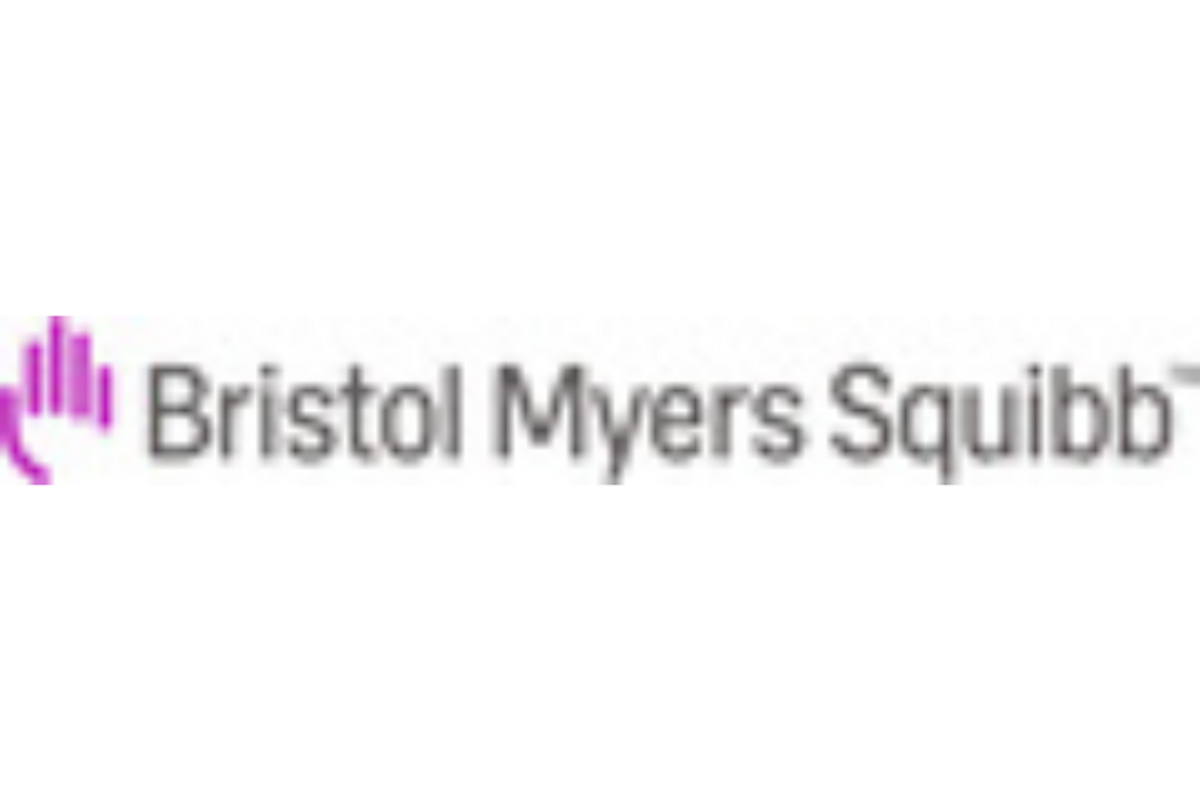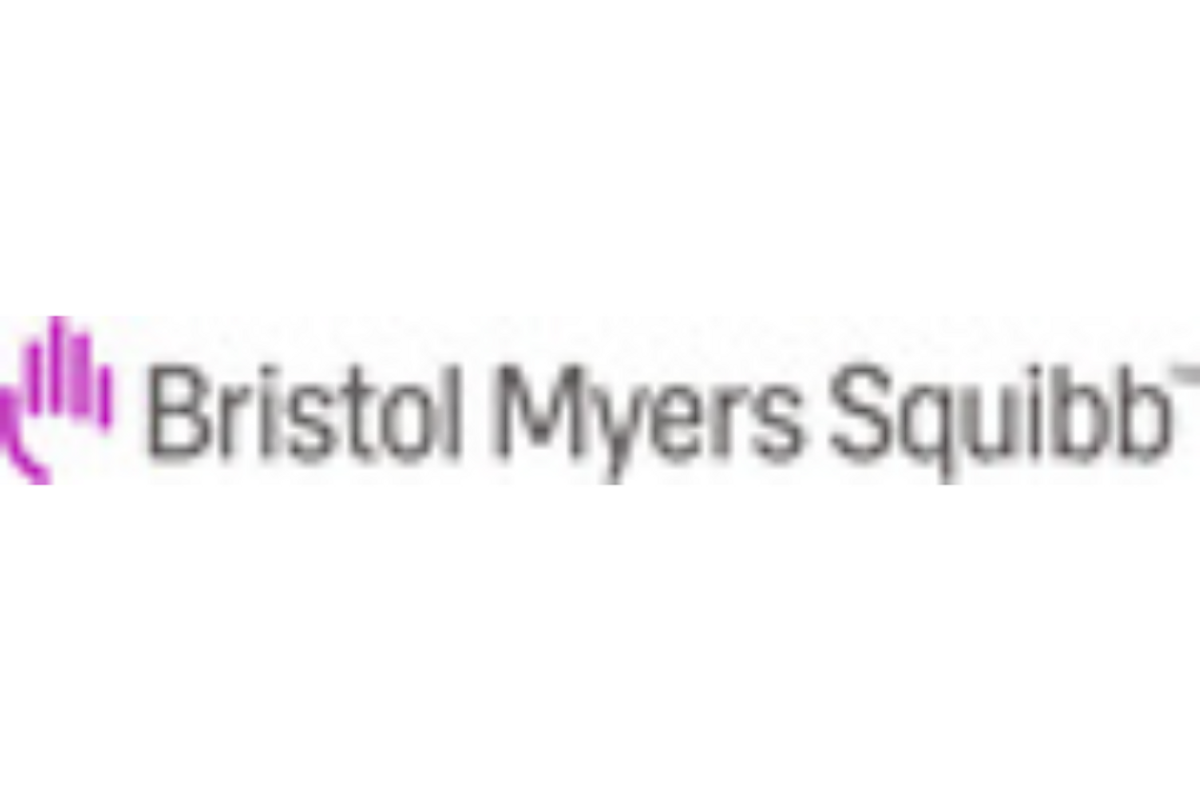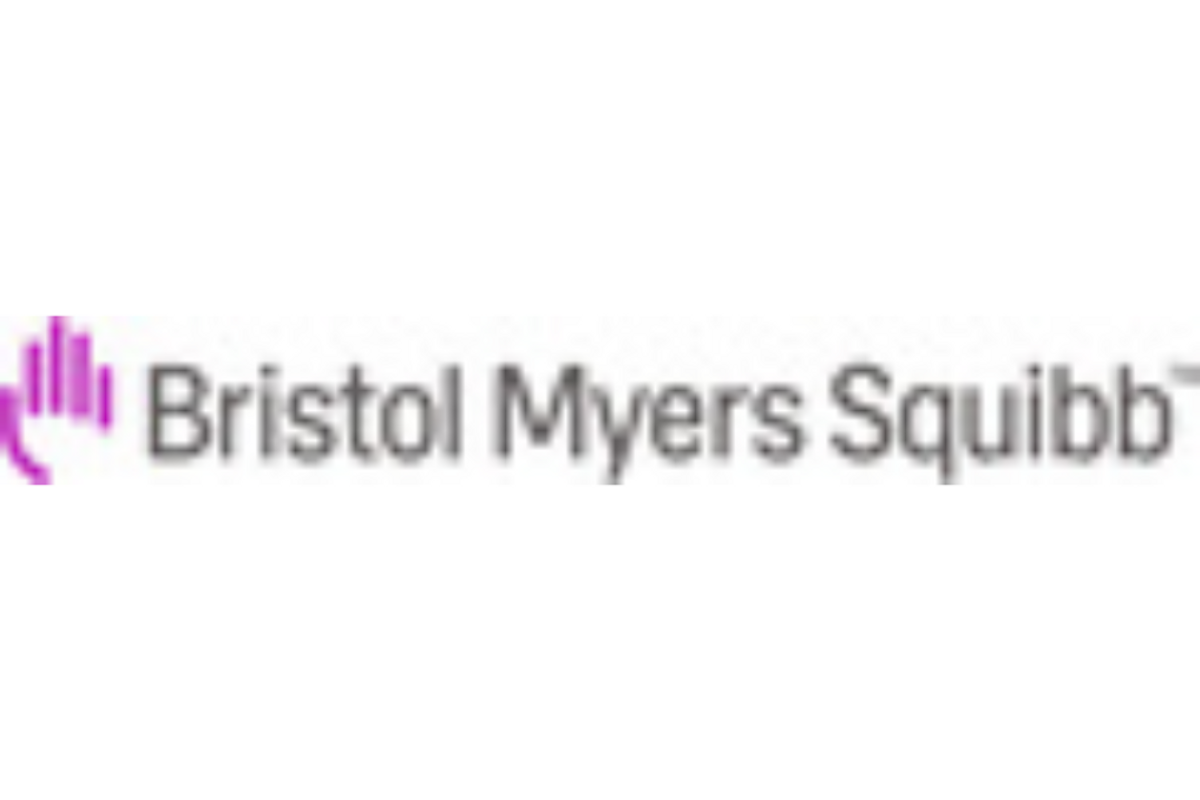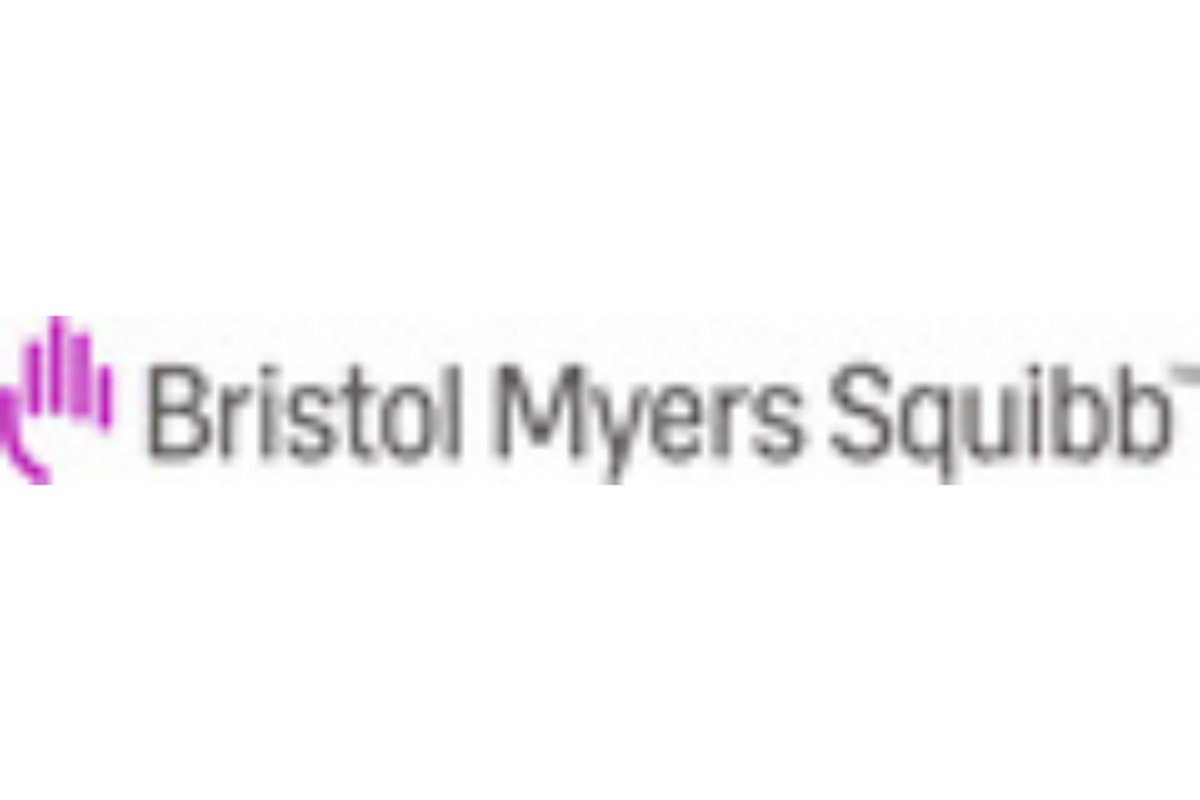Third authorized indication in Europe for Reblozyl , a first-in-class treatment for patients with diseases impacted by anemia
Bristol Myers Squibb (NYSE: BMY) today announced that the European Commission (EC) has granted full Marketing Authorization for Reblozyl ® (luspatercept), a first-in-class therapeutic option, for treatment in adult patients of anemia associated with non-transfusion-dependent (NTD) beta thalassemia. Reblozyl is currently approved in the European Union (EU), United States and Canada to address anemia associated with transfusion-dependent beta thalassemia and transfusion-dependent lower-risk myelodysplastic syndromes. The centralized Marketing Authorization approves use of Reblozyl in all EU member states, as well as Norway, Iceland and Liechtenstein.*
"Beta thalassemia is an inherited blood disorder that puts patients at significant risk for long-term clinical complications due to anemia, leaving a substantial need for treatment options, regardless of a patient's dependence on blood transfusions. This announcement is welcome news for patients with non-transfusion-dependent beta thalassemia associated anemia across the EU who are seeking newer treatment options to reduce these burdens," said Noah Berkowitz, M.D., Ph.D., senior vice president, Hematology Development, Bristol Myers Squibb. "Today's approval represents the third indication for Reblozyl in Europe , and we look forward to continuing to evaluate this first-in-class therapeutic option across multiple diseases impacted by the burden of anemia in a broad clinical development program."
The EC approval of Reblozyl was based on results from the Phase 2 BEYOND study, evaluating the efficacy and safety of Reblozyl versus placebo in 145 adults with NTD beta thalassemia. Patients were eligible to receive best supportive care, including red blood cell transfusions and iron-chelating agents.
Reblozyl is being developed and commercialized through a global collaboration with Merck following Merck's acquisition of Acceleron Pharma, Inc. in November 2021.
*Centralized Marketing Authorization does not include approval in Great Britain (England, Scotland and Wales).
About BEYOND
BEYOND (NCT03342404) is a Phase 2, double-blind, randomized, placebo-controlled, multicenter study to determine the efficacy and safety of luspatercept-aamt (ACE-536) versus placebo in adults with non-transfusion-dependent beta thalassemia. The study is divided into the Screening Period, Double-blind Treatment Period (DBTP) and Post-Treatment Follow-up Period (PTFP) and randomized 145 subjects at a 2:1 ratio of Reblozyl versus placebo. All patients were eligible to receive best supportive care, which included red blood cell transfusions; iron-chelating agents; use of antibiotic, antiviral, and antifungal therapy; and/or nutritional support, as needed. The primary endpoint of the study is the proportion of subjects who have an increase from baseline ≥1.0 g/dL in mean of hemoglobin values over a continuous 12-week interval from Week 13 to Week 24 of treatment in the absence of transfusions. Key secondary endpoints include mean change in non-transfusion-dependent beta thalassemia-patient reported outcome (NTDT-PRO) Tiredness and Weakness (TW) domain score and baseline hemoglobin (Hb).
Results demonstrated 74 of 96 (77.1%) patients in the Reblozyl treatment arm achieved the study's primary endpoint, ≥1.0 g/dL mean Hb increase from baseline, versus 0 of 49 (0%) patients in the placebo arm (P
In a key secondary endpoint of the study, 47 of 96 patients (49.0%) treated with Reblozyl achieved mean Hb increase of ≥1.5 g/dL compared to baseline from Week 37-48 in the absence of transfusions versus 0 patients (0%) in the placebo arm (P Reblozyl arm, 89.6% of patients remained transfusion free at weeks 1-24 versus 67.3% of patients in the placebo arm (P=0.0013). Improvements in patient-reported QoL outcomes (tiredness and weakness) were also observed to correlate with Hb increases.
Serious adverse reactions occurred in 11.5% of patients (n=11) who received Reblozyl. The most common adverse reactions occurring in ≥10% of patients treated with Reblozyl were bone pain (36%), headache (30%), arthralgia (29%), back pain (28%), prehypertension (23%), hypertension (20%), cough (18%), diarrhea (17%), influenza-like illness (17%), asthenia (13%), influenza (13%), insomnia (11%) and nausea (10%).
About Beta Thalassemia
Beta thalassemia is an inherited blood disorder caused by a genetic defect in hemoglobin. It is one of the most common autosomal recessive disorders, and the total annual incidence of symptomatic individuals is estimated at 1 in 100,000 people globally. 1 The disease is associated with ineffective erythropoiesis, which results in the production of fewer and less healthy red blood cells (RBCs), often leading to severe anemia—a condition that can be debilitating and can lead to other complications for patients—as well as other serious health issues. 2 Treatment options for anemia associated with beta thalassemia are limited, consisting mainly of frequent RBC transfusions that have the potential to contribute to iron overload, which can cause serious complications such as organ damage. 1 Non-transfusion-dependent beta thalassemia is a term used to describe patients who do not require lifelong regular transfusions for survival, although they may experience a range of clinical complications and require occasional or even frequent transfusions, usually for defined periods of time. 3
About Reblozyl ®
Reblozyl, a first-in-class therapeutic option, promotes late-stage red blood cell (RBC) maturation in animal models. 1 Reblozyl is being developed and commercialized through a global collaboration with Merck following Merck's acquisition of Acceleron Pharma, Inc. in November 2021. Reblozyl is currently approved in the U.S. for the treatment of:
- anemia in adult patients with beta thalassemia who require regular red blood cell (RBC) transfusions
- anemia failing an erythropoiesis stimulating agent and requiring 2 or more red blood cell units over 8 weeks in adult patients with very low- to intermediate-risk myelodysplastic syndrome with ring sideroblasts (MDS-RS) or with myelodysplastic/myeloproliferative neoplasm with ring sideroblasts and thrombocytosis (MDS/MPN-RS-T).
Reblozyl is not indicated for use as a substitute for RBC transfusions in patients who require immediate correction of anemia.
WARNINGS AND PRECAUTIONS
Thrombosis/Thromboembolism
In adult patients with beta thalassemia, thromboembolic events (TEE) were reported in 8/223 (3.6%) REBLOZYL-treated patients. TEEs included deep vein thrombosis, pulmonary embolus, portal vein thrombosis, and ischemic stroke. Patients with known risk factors for thromboembolism (splenectomy or concomitant use of hormone replacement therapy) may be at further increased risk of thromboembolic conditions. Consider thromboprophylaxis in patients at increased risk of TEE. Monitor patients for signs and symptoms of thromboembolic events and institute treatment promptly.
Hypertension
Hypertension was reported in 10.7% (61/571) of REBLOZYL-treated patients. Across clinical studies, the incidence of Grade 3 to 4 hypertension ranged from 1.8% to 8.6%. In patients with beta thalassemia with normal baseline blood pressure, 13 (6.2%) patients developed systolic blood pressure (SBP) ≥130 mm Hg and 33 (16.6%) patients developed diastolic blood pressure (DBP) ≥80 mm Hg. In adult patients with MDS with normal baseline blood pressure, 26 (29.9%) patients developed SBP ≥130 mm Hg and 23 (16.4%) patients developed DBP ≥80 mm Hg. Monitor blood pressure prior to each administration. Manage new or exacerbations of preexisting hypertension using anti-hypertensive agents.
Extramedullary Hematopoietic Masses
In adult patients with transfusion-dependent beta thalassemia, EMH masses were observed in 3.2% of REBLOZYL-treated patients, with spinal cord compression symptoms due to EMH masses occurring in 1.9% of patients (BELIEVE and REBLOZYL long-term follow-up study).
In a study of adult patients with non-transfusion-dependent beta thalassemia, a higher incidence of EMH masses was observed in 6.3% of REBLOZYL-treated patients vs. 2% of placebo-treated patients in the double- blind phase of the study, with spinal cord compression due to EMH masses occurring in 1 patient with a prior history of EMH. REBLOZYL is not indicated for use in patients with non-transfusion-dependent beta thalassemia.
Possible risk factors for the development of EMH masses in patients with beta thalassemia include history of EMH masses, splenectomy, splenomegaly, hepatomegaly, or low baseline hemoglobin (
Embryo-Fetal Toxicity
REBLOZYL may cause fetal harm when administered to a pregnant woman. REBLOZYL caused increased post-implantation loss, decreased litter size, and an increased incidence of skeletal variations in pregnant rat and rabbit studies. Advise pregnant women of the potential risk to a fetus. Advise females of reproductive potential to use effective contraception during treatment and for at least 3 months after the final dose.
ADVERSE REACTIONS
Beta Thalassemia
- Serious adverse reactions occurred in 3.6% of patients on REBLOZYL. Serious adverse reactions occurring in 1% of patients included cerebrovascular accident and deep vein thrombosis. A fatal adverse reaction occurred in 1 patient treated with REBLOZYL who died due to an unconfirmed case of acute myeloid leukemia (AML).
- Most common adverse reactions (at least 10% for REBLOZYL and 1% more than placebo) were headache (26% vs 24%), bone pain (20% vs 8%), arthralgia (19% vs 12%), fatigue (14% vs 13%), cough (14% vs 11%), abdominal pain (14% vs 12%), diarrhea (12% vs 10%) and dizziness (11% vs 5%).
Myelodysplastic Syndromes
- Grade >3 (≥2%) adverse reactions included fatigue, hypertension, syncope and musculoskeletal pain. A fatal adverse reaction occurred in 5 (2.1%) patients.
- The most common (≥10%) adverse reactions included fatigue, musculoskeletal pain, dizziness, diarrhea, nausea, hypersensitivity reactions, hypertension, headache, upper respiratory tract infection, bronchitis, and urinary tract infection.
LACTATION
It is not known whether REBLOZYL is excreted into human milk or absorbed systemically after ingestion by a nursing infant. REBLOZYL was detected in milk of lactating rats. When a drug is present in animal milk, it is likely that the drug will be present in human milk. Because many drugs are excreted in human milk, and because of the unknown effects of REBLOZYL in infants, a decision should be made whether to discontinue nursing or to discontinue treatment. Because of the potential for serious adverse reactions in the breastfed child, breastfeeding is not recommended during treatment and for 3 months after the last dose.
Please see full Prescribing Information for REBLOZYL.
About Bristol Myers Squibb
Bristol Myers Squibb is a global biopharmaceutical company whose mission is to discover, develop and deliver innovative medicines that help patients prevail over serious diseases. For more information about Bristol Myers Squibb, visit us at BMS.com or follow us on LinkedIn , Twitter , YouTube , Facebook and Instagram .
Cautionary Statement Regarding Forward-Looking Statements
This press release contains "forward-looking statements" within the meaning of the Private Securities Litigation Reform Act of 1995 regarding, among other things, the research, development and commercialization of pharmaceutical products. All statements that are not statements of historical facts are, or may be deemed to be, forward-looking statements. Such forward-looking statements are based current expectations and projections about our future financial results, goals, plans and objectives and involve inherent risks, assumptions and uncertainties, including internal or external factors that could delay, divert or change any of them in the next several years, that are difficult to predict, may be beyond our control and could cause our future financial results, goals, plans and objectives to differ materially from those expressed in, or implied by, the statements. These risks, assumptions, uncertainties and other factors include, among others, that the outcome of pricing and reimbursement negotiations in individual countries in Europe may delay or limit the commercial potential of Reblozyl ® (luspatercept) for the additional indication described in this release, that any marketing approvals, if granted, may have significant limitations on their use, that such product candidate may not receive regulatory approval from the U.S. Food and Drug Administration or other regulatory authorities for the additional indication described in this release, that continued approval of such product candidate for such additional indication described in this release may be contingent upon verification and description of clinical benefit in confirmatory trials, and whether such product candidate for such additional indication described in this release will be commercially successful. No forward-looking statement can be guaranteed. Forward-looking statements in this press release should be evaluated together with the many risks and uncertainties that affect Bristol Myers Squibb's business and market, particularly those identified in the cautionary statement and risk factors discussion in Bristol Myers Squibb's Annual Report on Form 10-K for the year ended December 31, 2022, as updated by our subsequent Quarterly Reports on Form 10-Q, Current Reports on Form 8-K and other filings with the Securities and Exchange Commission. The forward-looking statements included in this document are made only as of the date of this document and except as otherwise required by applicable law, Bristol Myers Squibb undertakes no obligation to publicly update or revise any forward-looking statement, whether as a result of new information, future events, changed circumstances or otherwise.
corporatefinancial-news
References:
- Galanello R, Origa R. Beta thalassemia. Orphanet Journal of Rare Diseases. 2010;5(11). Available at: https://ojrd.biomedcentral.com/articles/10.1186/1750-1172-5-11 . Accessed February 2022.
- Rivella, S. (2013). Ineffective erythropoiesis and thalassemias. Available at: https://www.ncbi.nlm.nih.gov/pmc/articles/PMC3703923/pdf/nihms-490109.pdf . Accessed February 2022.
- Musallam, K. M., Rivella, S., Vichinsky, E., & Rachmilewitz, E. A. (2013). Non-transfusion-dependent thalassemias. Haematologica, 98(6), 833–844. https://doi.org/10.3324/haematol.2012.066845 . Accessed February 2022.
View source version on businesswire.com: https://www.businesswire.com/news/home/20230302005889/en/
BMS Contacts
Media Inquiries:
media@bms.com
Investors:
investor.relations@bms.com



